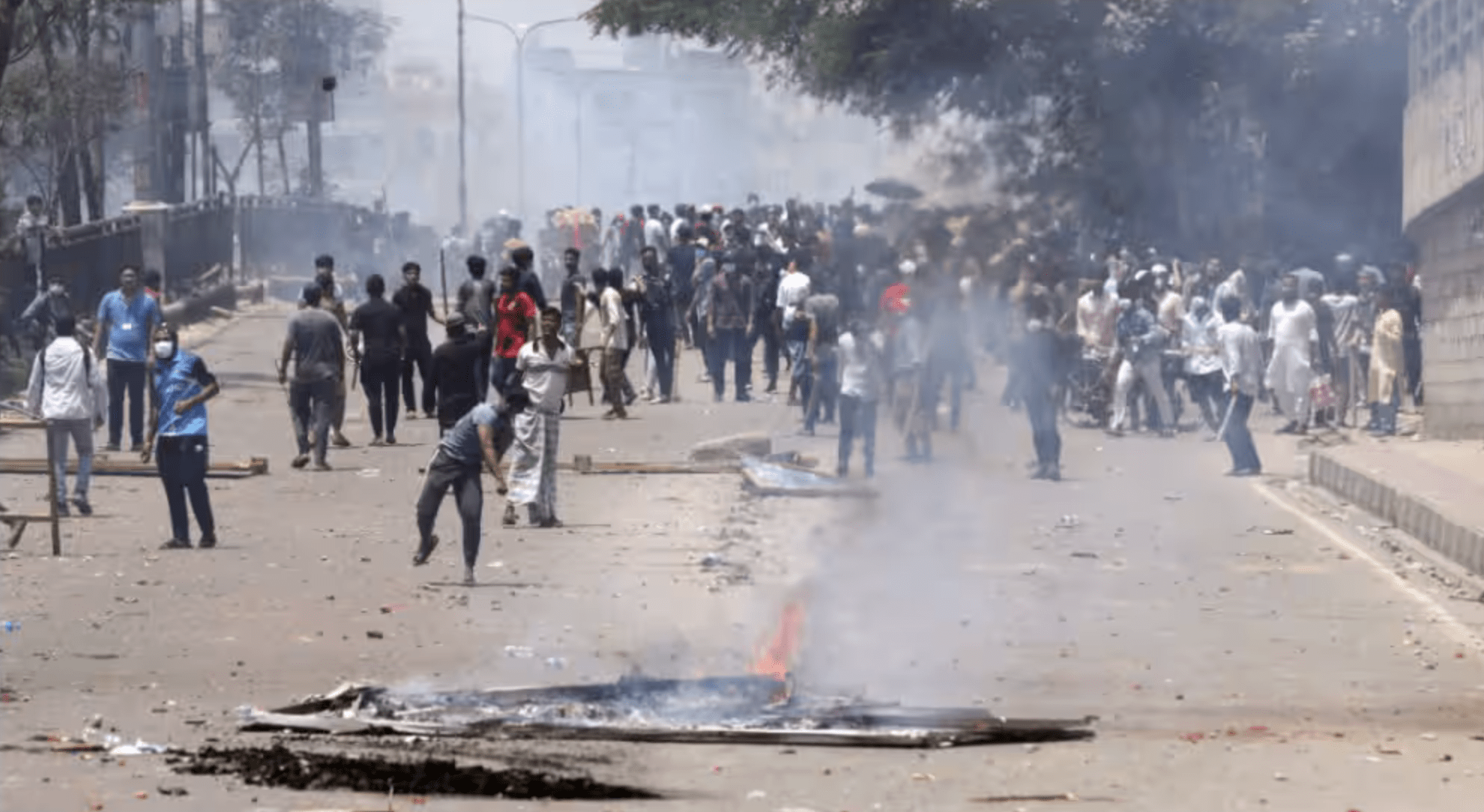A Plea for Bangladesh to Meet this Moment
 Students clash with police in Dhaka/AP
Students clash with police in Dhaka/AP
By Anil Wasif
July 24, 2024
The past week’s events in Bangladesh, where nearly 200 people have lost their lives in a violent crackdown on student-led protests, have deeply troubled the Bangladeshi Canadian community: Our hearts are broken.
This unrest is just the latest reminder of the underlying social and political issues plaguing Bangladeshi society. It is crucial for people everywhere who care about freedom to understand what led to this unrest and why it is our collective imperative to prioritize people and policy over politics.
Bangladesh, under the government of Prime Minister Sheikh Hasina, has been lauded as a development miracle, showcasing impressive economic growth over the past decade. However, this growth has not translated into equitable opportunities for all. According to reports, the formal employment rate has increased by a mere 0.2%, while the number of higher-educated individuals has grown by 3.5%. Unemployment among the educated stands at a staggering 12%. This jobless growth, coupled with rising inflation and widespread corruption, has made life increasingly difficult for ordinary citizens.
The government’s job quota system, which reserved 56% of government jobs for certain groups — notably war veterans who fought in Bangladesh’s war of independence in 1971 and their descendants — has created significant dissatisfaction among Bangladeshi youth. While the intention behind this system may have been corrective, it has led to a sense of deprivation and frustration among many young people who feel excluded from serving the public. The issue has become even more contentious recently, due to job applicants feeling that the quota is used as a loophole by political staffers to join the public service.
The people of Bangladesh are the hardest-working people I have ever seen in my life. Our multimillion-dollar bridges, roads, highways, and digital investments mean nothing if our people are not happy.
In any British parliamentary system, the separation of powers among the legislative, executive, and judiciary branches is crucial for maintaining a balanced and just governance structure. The July 21st Supreme Court decision to re-adjust job quotas demonstrates the judiciary’s role in upholding justice and addressing public grievances. However, it remains essential that the executive branch understands that legislative policies must serve the people first.
The government’s violent response to the protests has itself expanded the grievances beyond the issue of jobs and opportunity. The labeling of dissenters as anti-national and the suppression of internet communication have only deepened the divide between the government and the people. These young individuals are not just fighting against a flawed quota system; they are advocating for systemic change. As we have witnessed ourselves, if any government fails to keep their people happy, it’s a matter of time before unhappiness becomes a breeding ground for unrest.
The civilians of Bangladesh have the right to live a good life, free from fear and deprivation. The students’ frustration is not born out of a desire for chaos but out of policies that are failing them. It is time to listen to their voices and address their economic and social concerns with compassion and empathy.
As such, it is crucial for the prime minister to put people and policy over politics. The current situation calls for a government that is willing to engage with its citizens, understand their struggles, and work toward meaningful reforms. This is not a time for political posturing but for genuine leadership that prioritizes the welfare of citizens.
The people of Bangladesh are the hardest-working people I have ever seen in my life. Our multimillion-dollar bridges, roads, highways, and digital investments mean nothing if our people are not happy. This is a once-in-a-lifetime opportunity for a government to sit down with the next generation and agree on changes that will help rectify that.
Anil Wasif is research manager at Infrastructure Ontario and formerly a senior economist at Ontario’s Office of the Budget. He sits on the advisory board of the Max Bell School of Public Policy at McGill University and the Governing Council at the University of Toronto. He actively volunteers his time to help Bangladeshi communities across the globe. Opinions are his own, and do not reflect the views of any organizations with which he is affiliated.
